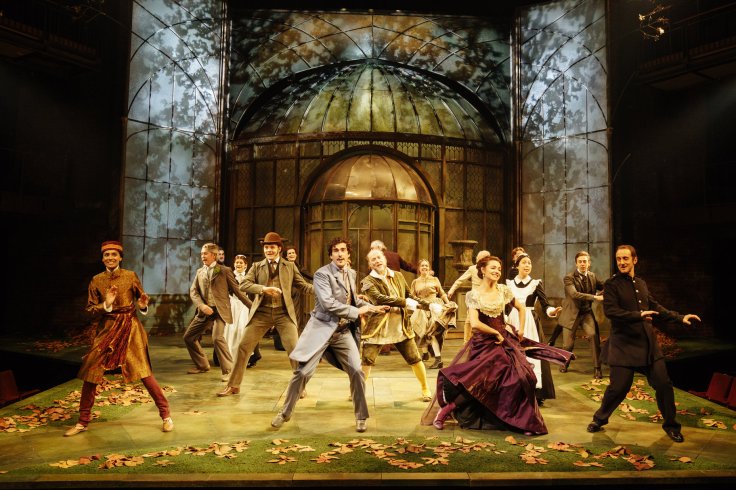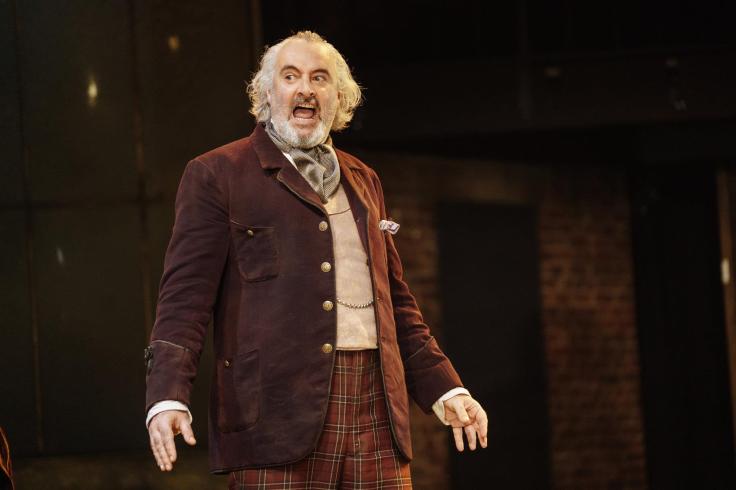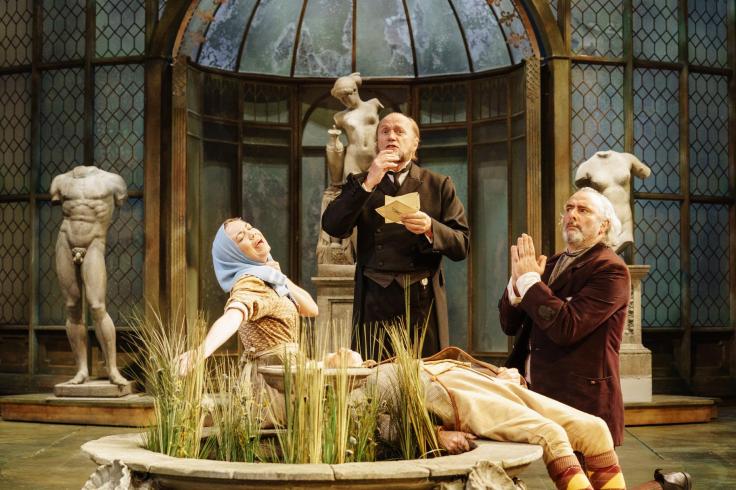Preview of Shakespeare’s Riotous yet Profound “Twelfth Night” (Broadcast Live here Feb 14th @ 7.15 pm)
If you love theatre, don’t miss this screening of one of the greatest, most joyous plays ever written. What better way to battle through the cold and drear of winter than seeing a great comedy – and a good production of “Twelfth Night” is a heart-warming, often hilarious, experience. A live screening from Shakespeare’s birthplace is always something to look forward to with eagerness, and “Twelfth Night” on Feb 14th brings to us one of his most performed and popular dramas. In fact, a fairly recent survey of all performances of Shakespeare’s plays at The Shakespeare Memorial Theatre, later the Royal Shakespeare Company, at Stratford-Upon Avon, from 1879 to 2004, this play is the second most performed of all the canon – there are no prizes for guessing the most performed; “Hamlet”. This delightful comedy is among the greatest and most popular comedies ever penned. I have loved it ever since I studied it as a student many moons ago. In the characters of Viola and Olivia we have two of the dramatist’s largest and most wonderful female roles.
A live screening from Shakespeare’s birthplace is always something to look forward to with eagerness, and “Twelfth Night” on Feb 14th brings to us one of his most performed and popular dramas. In fact, a fairly recent survey of all performances of Shakespeare’s plays at The Shakespeare Memorial Theatre, later the Royal Shakespeare Company, at Stratford-Upon Avon, from 1879 to 2004, this play is the second most performed of all the canon – there are no prizes for guessing the most performed; “Hamlet”. This delightful comedy is among the greatest and most popular comedies ever penned. I have loved it ever since I studied it as a student many moons ago. In the characters of Viola and Olivia we have two of the dramatist’s largest and most wonderful female roles.
The earliest recorded performance of this delightful comedy took place in one of the London colleges of law, the Middle Temple, in February, 1602 – a number of points in the play which suggest an audience of law students. There are a number of literary and historical clues in the text which, scholars believe, indicate that it was first performed in late 1599 or 1600. While there is nothing in the play to connect it to the twelfth night, (i.e. January 6th) the play, full of merriment, high jinks and drinking scenes, would be a fitting entertainment for an evening which brought the Christmas festivities to a close. The main plot is a loose adaptation of a tale from a novel published in 1581 and this novel was itself based on an Italian comedy which was performed in Cambridge University in 1537. (Perhaps originality is an overprized entity; it’s salutary to reflect that of the Bard’s thirty-seven plays only one, “Love’s Labour’s Lost”, is considered to have an original plot.) As the curtain rises, the lovesick Orsino, Duke of Illyria, is embarking on one of the most famous speeches in drama:- “If music be the food of love, play on. // Give me excess of it that, surfeiting, // The appetite may sicken and so die.”
As the curtain rises, the lovesick Orsino, Duke of Illyria, is embarking on one of the most famous speeches in drama:- “If music be the food of love, play on. // Give me excess of it that, surfeiting, // The appetite may sicken and so die.”
He is using a deputy to court the rich Countess Olivia, who, we soon discover, is unable to love him in return. His emissary is a newly-employed favourite pageboy named Cesario – what he doesn’t know is that Cesario is in reality a shipwrecked gentlewoman of noble birth whose true name is Viola – and it being a comedy by Shakespeare, confusion is worse confounded when it emerges that Cesario/Viola is in love with Orsino. As Mr. Laurel and Mr. Hardy might say:- ”What a fine mess we’ve gotten ourselves into”! The emissary (in disguise) is herself in love with the man for whom she is pleading. To make matters more complicated, when Cesario/Viola goes a-wooing Olivia (on Orsino’s behalf, you remember), the latter falls in love with him/her.
So, in case you’re as hopelessly lost as I am at this point:- Orsino loves Olivia (who doesn’t love him) who loves Cesario/Viola who, in turn, loves Orsino – nothing could be more simple! There is also Viola’s identical twin brother, Sebastian, presumed drowned, who later comes on the scene – of course, the identical twin is one of the great engines of comedy in the theatre. The mayhem that arises from mistaken identity is a rich source of farce in Shakespeare and many another playwright – with “Twelfth Night”, as events take their course you must be ever on the alert if you are “to keep up with the plot”.
 Then there’s puritanical, self-righteous, melancholy Malvolia, Olivia’s steward, who is cruelly gulled into believing that she is in love with him. There’s also Sir Andrew Aguecheek, a wealthy, foolish knight, (in fact an utter idiot) who provides the funds for Olivia’s riotous, drunken uncle, Sir Toby Belch. As in a number of Shakespeare’s plays, there’s also a clown, Feste who is Olivia’s court jester – and it has to be said the clown/fool is often the wisest and shrewdest character in the play. Olivia’s sharp-witted serving woman, Maria, also plays a delightful role in the comic scenes.
Then there’s puritanical, self-righteous, melancholy Malvolia, Olivia’s steward, who is cruelly gulled into believing that she is in love with him. There’s also Sir Andrew Aguecheek, a wealthy, foolish knight, (in fact an utter idiot) who provides the funds for Olivia’s riotous, drunken uncle, Sir Toby Belch. As in a number of Shakespeare’s plays, there’s also a clown, Feste who is Olivia’s court jester – and it has to be said the clown/fool is often the wisest and shrewdest character in the play. Olivia’s sharp-witted serving woman, Maria, also plays a delightful role in the comic scenes.
“Twelfth Night” Live from the RSC – what is there to beat that? Just penning the above whets my appetite for this magical play.
“Twelfth Night” Broadcast Live from RSC, Stratford, Thurs, Feb 14th @ 7.15 pm.
Jim Ryan
